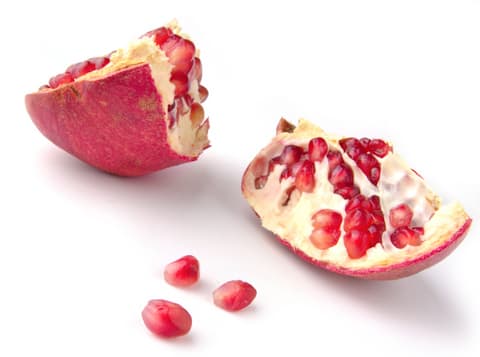Baidu Algorithm Update “Pomegranate” Targets Low-Quality Page Content and Malicious Ads

While Google rolled out Penguin 2.0 last week, Baidu in turn announced a new update to their algorithm named “Pomegranate”. The first stage of the update is targeted at pages with multiple pop-up advertisements, ads that pretend to be page content, and other types of spammy or malicious ads. For Baidu users and white-hat SEOs, this is an update a long time in coming.
Baidu made the announcement May 17th, saying that the first stage would begin in a week’s time. After the first rollout, users can expect sites with ads that hurt the user experience to plummet in rankings, while sites with high-quality content should see a significant boost. They recommend webmasters should use this time to do a thorough review of their site advertisements and clean up any offending content.
Here’s the English translation from the Official Baidu Webmasters Blog (Simplified Chinese):
Pomegranate Algorithm Update – The Low Page Quality Terminator
To our beloved webmaster friends:
Hello everyone!
We’ve always operated on the principles of supplying users with the most reliable and direct communication possible, incessantly improving our algorithm, and upgrading our system. Protecting sites with high-quality content and getting rid of webspam have been two things we’ve always strived for.
This time, we’d like to announce to our webmaster friends that we’re introducing a series of updates aimed at low-quality web pages, that we’re calling the “Pomegranate Algorithm Update”.
The first stage that will go into effect will target pages that contain large amounts of malicious advertisements that interfere with users’ normal browsing experience, especially sites that launch large numbers of low-quality pop-up window advertisements or advertisements that confuse users by mimicking or appearing as page content.
From the entire internet environment perspective, a growing flood of low-quality advertisements have invaded every corner of the web, becoming almost omnipresent. It has already had a significant effect on everyday users’ browsing experiences. Just think about it: How do you feel when you open a web page and see useless on-page content, and then are bombarded with a bunch of spammy ads in pop-up windows that conceal the main window? Yeah, that’s what we thought.
In this way, after this update is online we should see less low-quality ads, with high-quality pages without popup windows seeing higher ranking (of course as long as the content is of value). Likewise, we should see pages with malicious pop-up advertisements, confusing content or spammy ads have their ranking fall substantially.
This corresponds to the wishes of search engine users, and is a step forward in the necessary quest to purify the overall environment of the internet.
Lastly, we hope that webmasters can take the long-view approach when thinking about their users. The only way to develop a strong foundation for your site is by winning users’ long-term favor through the responsible placement of advertisements on the site that do not negatively influence the users’ experience.
Reminder: The first phase of the pomegranate algorithm update that targets pages with a large number of pop-up advertisements, advertisements that confuse users by mimicking or appearing as page content, or spammy advertisements will officially go live in one week. We hope webmasters will use this week to quickly investigate their sites’ advertising methods, and fix any of the aforementioned problems as soon as possible.
See any big movement in Baidu rankings this week? Share your experiences in the comments below.